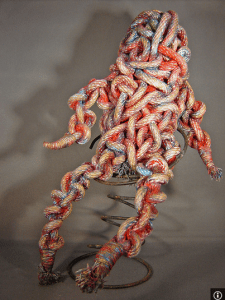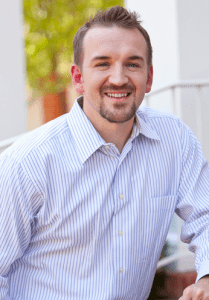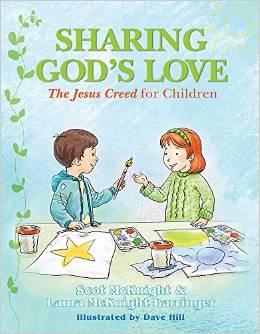Finding a New Start
A Discussion with Scot McKnight Below is an online interview/dialogue on spiritual growth I had with Dr. Scot McKnight, a New Testament Professor at Northern Seminary and the author of Christianity Today’s Book of the Year, The Jesus Creed. This dialectic is offered both here and on Scot’s blog on Patheos.com)
Brad: Honestly, I think many of us are stuck. I read a story about a family who had spent Thanksgiving in Seattle, Washington, and then began their long journey back to San Francisco. James and Kati Kim, along with their two young daughters, traveled south on Interstate 5 until late in the evening, intending to spend the night in an upscale lodge. But they missed their turn.
Instead of backtracking, the Kims decided to follow an alternate route, and traveled 62 miles south onto what seemed like a more direct path. Tragically, the road they chose was closed in the winter. The Kims eventually decided to turn off onto a spur road. An area resident commented that this was a tragic decision: “Once you get off that main road,” he said, “you’re lost.”
Lost, their station wagon became stuck in the drifting snow. They remained there for a week, running the car intermittently and nibbling on their small amount of food. Once the gas ran out, they burned magazines, wood, and eventually car tires in an effort to keep warm. On December 1st, James left to try to find a way out. A few days later, mother Kati and their children were spotted by rescue helicopters. Sadly, James had become stuck in the snow and died of exposure not far from the car.
Many of, too, us are stuck. Our spiritual lives wander back roads until they are frozen solid. Our hearts become entombed in ice. We need a way out. We need freedom—a rescue helicopter, a new beginning. Scot, what are your thoughts on why so many of us—and our loved ones and neighbors—seem so spiritually stuck? What factors are involved in entombing us?
Scot: That’s a sad story, Brad.
We are all creatures of habit and I have to think God hard-wired us to become the characters our habits create. Good habits create good characters and joyful lives; bad habits create bad characters who rebel against the misery they have themselves largely created. To become the person God wants us to be we need to establish habits that will lead to that kind of person. The apostle Paul taught us that the right character is shaped by the fruit of the Spirit, but to become that kind of person we have to expose ourselves constantly to the Spirit of God, and we can’t do that fiddling away our time.
Dallas Willard called this process VIM: we need a vision, we have to have intention, and the means to create that vision are the spiritual disciplines. They are designed to expose us to God’s grace and God’s Spirit for transformation. So, we need some good habits:
It begins with Jesus, who wanted us to become loving people. His vision was a loving community; the intention was a willingness to choose to be with Jesus on a constant basis; the means was reciting the Jesus Creed or exposing ourselves to what God wants for us.
Brad: As we studied the Jesus Creed as a church this week at Cherry Creek Presbyterian Church, we looked at the new start John the Baptist offered to the people of first century Israel (Matthew 3:1-12). We noted that the secret of starting anew almost always begins with “Truth-telling.” Truth-telling is the process of honest admission to God and to ourselves of reality (we sometimes call this in Christian circles “confession and repentance”.) Scot, what keeps us from “telling the truth” to others, to ourselves, and to God?
Scot: Fear in three directions: we are afraid of God, like Adam and Eve, because God knows the utter truth with penetrating depths that frighten us; we are afraid of others, because we wonder what they will think of us — will they love us? will they reject us? will they talk about us? — if they know the truth of who we really are; and we are afraid of our own selves, afraid that if we open up the lid to our deepest heart’s caverns that will discover what we’d prefer not to know. So we suppress the lid and fear, but if we will open the lid the gurgling will find its way to the healing graces of God who will gives a perfect love that casts out fear.
Brad: A broad spectrum of psychological research agrees that the single most important factor in having close, intimate relationships with friends, family, or lovers is authentic self-disclosure. This means that you cannot really be close to someone without a willingness to be vulnerable and honest. It is my opinion that this is true with God, too. Scot, how does the Jesus Creed call us to authentic self-disclosure? And how do we know when we’re really telling ourselves and God the truth?
Scot: Here is what I have learned, am learning and will continue to learn (and I have plenty to learn about this): the more we embrace that God’s will for us is to love God and to love others as ourselves (love of God, love of self, love of others), the more we recite the Jesus Creed, the more love will come to mind throughout the day — and over time, with this routine exposure of our own heart, soul, mind and strength to God’s call to love, the more loving we will become.
But in the process we will discover that the more recitation the more little crannies of un-loving-ness will be revealed in our lives. The recitation of the Jesus Creed makes possible momentary revelations where we need to love or where we are not loving enough or, often enough we must admit, where we simply don’t want to love.
The Jesus Creed summons us to the deepest level of authenticity: the authenticity of being people marked by love.
The Bible in James 5 tells us that we should, “Confess your sins to each other and pray for each other that you may be healed.” How do we encourage each other to be truth-tellers? To gain a new start?
Scot: By teaching a soft-shoe dance with one another. We take the first step of telling truth; we wait for the one with whom we dance to respond by telling the truth. If we move two feet in rapid succession without our dance partner reciprocating, we step on them. So I would say we move one step at a time, gently, patiently, hopefully, and in the power of God’s gracious Spirit.











